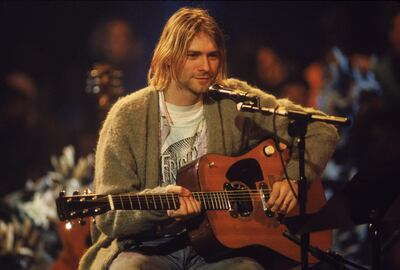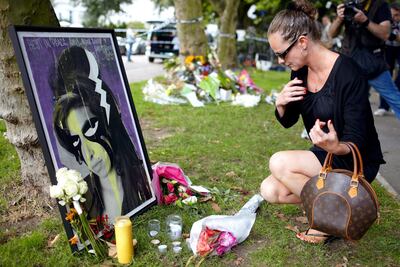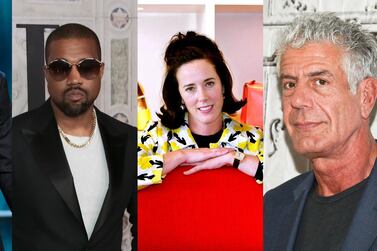On Sunday, Justin Bieber opened up on Instagram about his battle with depression, the diagnosis of which was publicly confirmed in February. He wrote in the caption: “Just wanted to keep you guys updated... Been struggling a lot. Just feeling super disconnected and weird.”
It was an important step in his recovery. Although the 25-year-old star, who shot to fame when he was just 15, isn’t worried about himself – “I always bounce back so I’m not worried just wanted to reach out and ask for [you] guys to pray for me,” he added – we, as onlookers, shouldn’t dismiss his bravery. In fact, we should take Bieber’s admission very seriously.
It may seem as though an endless stream of celebrities are opening up about their mental health struggles, particularly those in their mid-20s, with a similar career path to Bieber’s. Selena Gomez has been very vocal about her battles with anxiety and depression. Demi Lovato has spoken up about her bipolar and eating disorder diagnoses. Miley Cyrus has talked about her depression.
As many of these young stars achieved a level of fame many of us could never even dream of before they entered their 20s, it’s perhaps unsurprising their minds and bodies have become disconnected.
“I believe that these young stars are not yet self-aware enough and may not be fully in touch with or stay aligned with their own values,” comments Dr Tara Wyne, a clinical psychologist and clinical director of Dubai’s mental wellbeing clinic, Lighthouse Arabia. “They don’t have the anchor or years of experience and making smart choices regarding their energy and lifestyle to be able to safeguard their wellbeing.

“I think young stars can be too easily influenced by the machine of stardom and fame and not realise that all that is being offered isn’t actually in their interest. This can lead to feeling lost and overwhelmed and losing connection with self and others which makes them particularly vulnerable to mental health problems.”
It is, of course, not just an issue that afflicts the 20-somethings. Plenty of older stars have opened up; Lady Gaga, Jim Carrey, Ellen DeGeneres, Hugh Laurie – to name a handful. It can start among the younger set, too: model and actress Cara Delevingne this summer told Vogue about her "massive wave of depression, anxiety and self-hatred" at age 15.
Just last week, The Prodigy frontman Keith Flint was found dead in his home. He reportedly hung himself. It’s not uncommon in the world of music; from Nirvana’s Kurt Cobain to Linkin Park’s Chester Bennington and Soundgarden’s Chris Cornell, suicide among the musically talented is sadly nothing new.

One of the biggest side effects of mental health disorders among the rich and famous, particularly in the west, is addiction. Just look at the case of Amy Winehouse who died in 2011 aged 27 of alcohol poisoning. American rapper Lil Peep, whose real name was Gustav Ahr, died aged 21 in 2017 from a pain medication overdose.
Both Winehouse and Ahr spoke out about their struggles. Their increasingly erratic behaviour, marred by a poor performance (or a number of), signalled to the people around them that something was seriously wrong. And yet these cries for help went ignored.
They were encouraged to keep getting on stage and continue working by an industry that seemingly couldn’t care less about the human being in front of them, instead focusing on the dollars their unique talents are raking in. People within their inner circles, if the reports about both singers' lives are to be believed, didn’t hear – or didn’t want to hear – the truth.
Just a few months ago, at the Amsterdam Dance Event, mental health and burnout in the EDM scene was one of the main topics of discussion. Clare Scivier, a behavioural psychologist and former artist manager, said: “We have seen recent cases where there should have been more awareness from managers who pushed some of their artists too far. And that comes down to a lack of education.
“We may now need to discuss a longer term plan for an artist instead of focusing on looking for whatever money is available at this moment.”

It's not just down to the industry, though. As fans, and onlookers, we also share a responsibility to take these celebrities seriously. While, as a collective, many of us are sympathetic towards people dealing with mental health issues, as more research is done and awareness raised, others, unfortunately, still need to catch up.
Figures show mental health disorders are on the rise. In England, one in eight people aged under 19 have one, based on a 2017 survey of nearly 10,000 children and young people. The incidence rose to one in six for people aged 17 to 19. A study in America showed 3.4 per cent of the US population (more than 8.3 million adults) suffer from serious psychological distress, it was reported in the journal Psychiatric Services.
In the UAE, new statistics released at January's Dubai Health Forum show nearly a third of the population of Dubai – an estimated 1.3 million people – are in need of mental health help.
Whether our concerns are extended to celebrities or the person who sits next to us at work every day, there’s no doubt we need to be more aware, more sensitive and willing to help when the time comes.
As for Bieber, his opening up so publicly was brave and courageous, says Dr Wyne. “[It] is a real indication that he is committed to his path of wellbeing. He is also stepping up to being a role model for young people. He is sharing his lived experience of mental health difficulties and highlighting that there is no shame in being vulnerable.
“Justin is demonstrating that even if you lose yourself or lose your way, you can always find your way back to an authentically happy life.”
To us average Joes, who aren’t among the most famous people on the planet, it might seem as though Bieber isn’t from our universe, that his issues couldn’t possibly have any impact on our daily lives. He does. They do, even if it is symbolically. We can learn a lot from Bieber. And we should never forget that.







